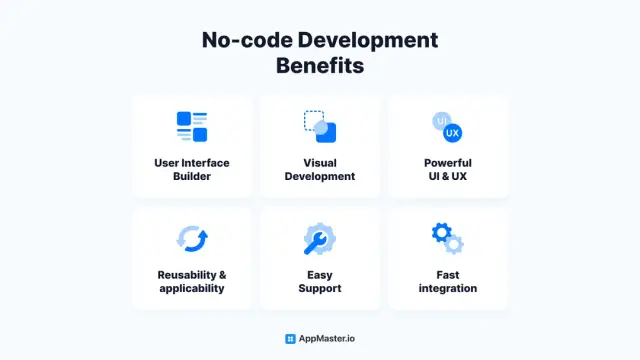Challenges Faced by Women in Tech: Navigating Stereotypes and Bias
Explore multiple challenges faced by women in the tech industry, from stereotypes and bias to career progression obstacles. Learn strategies for overcoming these barriers, create an inclusive environment and thrive in technology careers.

The tech industry has long been a male-dominated field, and despite significant progress over the years, women still face numerous challenges as they navigate their way through this ecosystem. In this article, we highlight the issues that women in tech face, from dealing with stereotypes and unconscious bias to battling the gender pay gap. Additionally, we look at how women can overcome these hurdles and succeed in the tech industry while promoting a more inclusive environment.
Gender Stereotypes and Unconscious Bias
One of the primary challenges women in tech face is being subject to gender stereotypes and unconscious bias. These deeply ingrained societal perceptions can affect various aspects of a woman's professional life, including hiring, project allocation, promotions, and workplace interactions.
Common gender stereotypes in the tech industry include the belief that women are less competent or skilled in technical roles, making them unsuited for positions like engineers or developers. Furthermore, women are often perceived as more emotional than men, which can lead to assumptions that they cannot handle high-pressure situations or that they are better suited for support or administrative roles.
Unconscious bias can manifest in numerous ways, from male colleagues expressing surprise when a female team member excels in tasks or makes significant contributions, to women being consistently interrupted or talked over in meetings. Such instances can chip away at a woman's confidence, discouraging her from reaching her full potential and contributing her valuable insights and expertise.

Addressing these gender stereotypes and unconscious bias plays a vital role in fostering a more inclusive, welcoming, and fair workplace. This can be achieved by incorporating gender bias and diversity training, promoting empathy and understanding, and implementing policies that ensure equal opportunities for all employees. Research has shown that diverse teams tend to be more innovative and creative, demonstrating the importance of addressing this issue.
The Gender Pay Gap in Tech
Another significant challenge faced by women in tech is the persistent gender pay gap. Despite widespread recognition of the problem, women in the tech industry continue to earn less than their male counterparts. This pay disparity not only has an immediate impact on financial security, but can also lead to reduced job satisfaction and motivation, ultimately affecting career progression and talent retention in the long run.
Companies must actively work to address the gender pay gap, with key measures including regular pay audits, transparent compensation policies, establishing merit-based pay increases, and creating guidelines to ensure fair salary negotiations. Employers can also invest in career development initiatives, equipping women with the necessary skills and knowledge to advance within their roles and alleviate pay disparities.
On an individual level, women in tech can educate themselves about market rates for their roles and utilize negotiation techniques to advocate for fair compensation. This is crucial not only for their career progression but also for setting a precedent within their workplace that encourages equitable treatment for female tech professionals.
By acknowledging these challenges faced by women in tech, we can ensure that the tech industry becomes a more inclusive and diverse space that fosters innovation, creativity, and equal opportunities for all. By empowering women to break free from the limitations of stereotypes, unconscious bias, and the gender pay gap, we support their ability to succeed and grow within the industry.
Difficulties in Career Advancement
One of the most significant challenges faced by women in the tech industry is the difficulty they face in advancing their careers. Despite having the necessary skills and qualifications, women often report that they face additional barriers when attempting to secure promotions. These challenges can include explicit and implicit biases, sexism, and a lack of organizational structures to ensure equal opportunities for all employees.
A significant factor contributing to this difficulty is the lack of representation of women in leadership positions. According to research, women hold only 25% of executive, senior-level, and management roles in tech companies. This under-representation can lead to a lack of role models for women to look up to, as well as perpetuating the misconception that women are not suited for leadership roles, which further compounds the challenge of career advancement.
In addition, women in the tech industry often experience "the double-bind dilemma", which refers to the problematic perception that women who display traditionally masculine traits, such as assertiveness or determination, are often seen as unlikable, while those who display stereotypically feminine traits are perceived as lacking competence. This catch-22 can significantly impact a woman's chances of advancing, as women are often expected to strike an impossible balance between being assertive and being likable.
Finding Mentorship and Support Networks
Mentorship and professional support networks are crucial to career success, regardless of gender. However, women in the tech industry often face a scarcity of role models and mentors who share their experiences and can offer guidance. This lack of mentorship can result in a lack of self-confidence and reduced access to opportunities, limiting women's potential for success within the industry.
Encouraging mentorship and fostering support networks are essential ways to address these challenges. Organizations should actively promote mentorship programs and create networking opportunities for women within both their internal structures and the broader industry. Providing women with the resources and connections they need to excel in their careers is a crucial step in overcoming the barriers they face.
Additionally, women in tech can benefit from seeking out external support networks. Numerous organizations and communities have been established to provide resources, connections, and mentorship for women in the tech industry. These groups can offer invaluable support and encouragement, helping women working in tech to develop their skills, expand their networks, and ultimately advance their careers.
Creating an Inclusive Workplace Culture
To effectively address the challenges faced by women in the tech industry, organizations must prioritize creating inclusive workplace cultures. This involves addressing unconscious bias, improving diversity in leadership, and implementing policies that promote equal opportunities for all employees. Unconscious bias training is an essential tool for addressing the stereotypes and preconceived notions that can hold women back in the tech industry. By educating employees about these biases and providing strategies for overcoming them, organizations can foster more inclusive and equitable work environments.
Developing a diverse leadership team is another critical aspect of creating an inclusive workplace culture. By promoting women to leadership positions and ensuring equal representation at all levels, organizations can challenge the misconceptions that prevent women from advancing in the tech industry.
Flexible work arrangements are particularly important for creating an inclusive workplace, as they enable employees to balance their work and personal lives more effectively, retaining talented professionals who might otherwise be forced to choose between career and family. Providing remote work options, flexible hours, and family-friendly policies can go a long way in alleviating the challenges faced by women in tech.
Finally, organizations must implement transparent processes for promotions, evaluations, and compensation to ensure that all employees have equal access to career advancement. Greater transparency can prevent bias from influencing decisions related to promotions and compensation, helping to create a level playing field for all employees. By taking these steps, organizations can cultivate inclusive workplace cultures that support and empower women in the tech industry, providing them with the resources and opportunities they need to overcome challenges and thrive in their careers.
Strategies for Overcoming Challenges
Despite the bias and stereotypes prevalent in the tech industry, women can employ various strategies to thrive in their careers. The following are some effective approaches for confronting the challenges women face in tech:
- Build a network of professional contacts: Networking is essential for career growth and can lead to opportunities, mentorship, and support. Women in tech should seek out and attend industry events, engage with colleagues, and participate in online forums to create a strong professional network.
- Find mentors and role models: Having experienced mentors and role models is invaluable for career development. These individuals can provide guidance, inspiration, and advice based on their own experiences. Women should seek out both male and female mentorship and foster relationships with those who can share professional insights.
- Develop self-confidence: Building self-confidence is crucial for navigating a male-dominated industry. Women in tech should acknowledge their skills, achievements, and capabilities, practice self-affirmation, and refuse to let gender stereotypes or bias undermine their abilities.
- Seek opportunities to demonstrate your skills: Women in tech should actively search for opportunities to showcase their technical abilities, such as leading projects, presenting at conferences, and engaging in collaborative problem-solving. By actively participating in various tasks, women can challenge stereotypes and demonstrate their technical prowess.
- Advocate for fair compensation and advancement: Women in the tech industry should learn how to negotiate salary and benefits in a proactive and assertive manner. Additionally, they should advocate for opportunities to advance in their careers, present ideas for new projects or initiatives, and ensure their achievements are recognized.
The Role of No-code and Low-code Platforms for Empowering Women in Tech
No-code and low-code platforms play a significant role in empowering women in the tech industry. These tools democratize access to software development, making it possible for individuals without formal programming education to create powerful applications. Platforms like AppMaster.io enable aspiring developers to build backend, web, and mobile applications using a visual interface, eliminating the need for extensive coding knowledge.

These platforms can benefit women in tech in the following ways:
Easy skill development
No-code and low-code platforms provide an environment where women can learn software development without a steep learning curve. They can develop skills and expertise in various technical areas, thus increasing their confidence and employability.
Opening up opportunities
By allowing more people to create software applications, no-code and low-code platforms open up opportunities for women to enter the tech industry and excel in technical roles. They enable women to gain experience and prove their technical abilities, minimizing the impact of stereotypes and bias.
Supporting entrepreneurship
No-code and low-code platforms can empower women entrepreneurs in the tech space. They can build and launch their web, mobile, and backend applications quickly, with minimal investment, allowing them to test ideas and compete in the market effectively.
Platforms like AppMaster.io have the potential to level the playing field in the tech industry, giving women the opportunity to build applications, prove their technical abilities, and thrive in their careers.
Conclusion: Supporting and Celebrating Women in Tech
It's essential to support and celebrate women in tech as they navigate the challenges presented by stereotypes and bias. Encouraging diversity and inclusion in the tech industry benefits not only women but also organizations and the broader economy. Increased diversity fosters creativity, innovation, and more powerful solutions to complex problems.
By understanding the unique challenges that women in tech face and implementing strategies for overcoming these barriers, companies can create a more inclusive environment in which women can thrive. No-code and low-code platforms, such as AppMaster.io, can empower women to develop technical skills and contribute to the tech industry, ultimately breaking down barriers and stereotypes. By working together, the tech community can create a more gender-balanced and equitable industry that benefits everyone involved.
FAQ
Challenges faced by women in the tech industry include gender stereotypes, unconscious bias, pay gap, difficulties in career advancement, and finding mentorship and support networks.
Women in tech typically earn less than their male counterparts, which can lead to reduced motivation, job satisfaction, and long-term financial security.
Common gender stereotypes in the tech industry include the belief that women are less capable in technical roles, that they are more emotional, and that they are better suited for support or administrative positions.
Organizations can create an inclusive workplace culture by offering unconscious bias training, flexible work arrangements, developing diverse leadership, and promoting fair advancement and compensation policies.
Strategies for overcoming challenges faced by women in tech include building networks, finding mentors, fostering self-confidence, seeking opportunities to demonstrate skills, and advocating for fair compensation and advancement.
No-code and low-code platforms like AppMaster.io can empower women in tech, as they democratize access to software development, allow skill building, and open opportunities for women to gain experience and prove their technical expertise.
Supporting and celebrating women in tech is crucial for creating an inclusive and diverse industry that encourages innovation, creativity, and better solutions to complex problems.
Organizations can address the gender pay gap in tech by conducting regular pay audits, ensuring transparent compensation policies, and implementing guidelines for fair salary negotiations.





